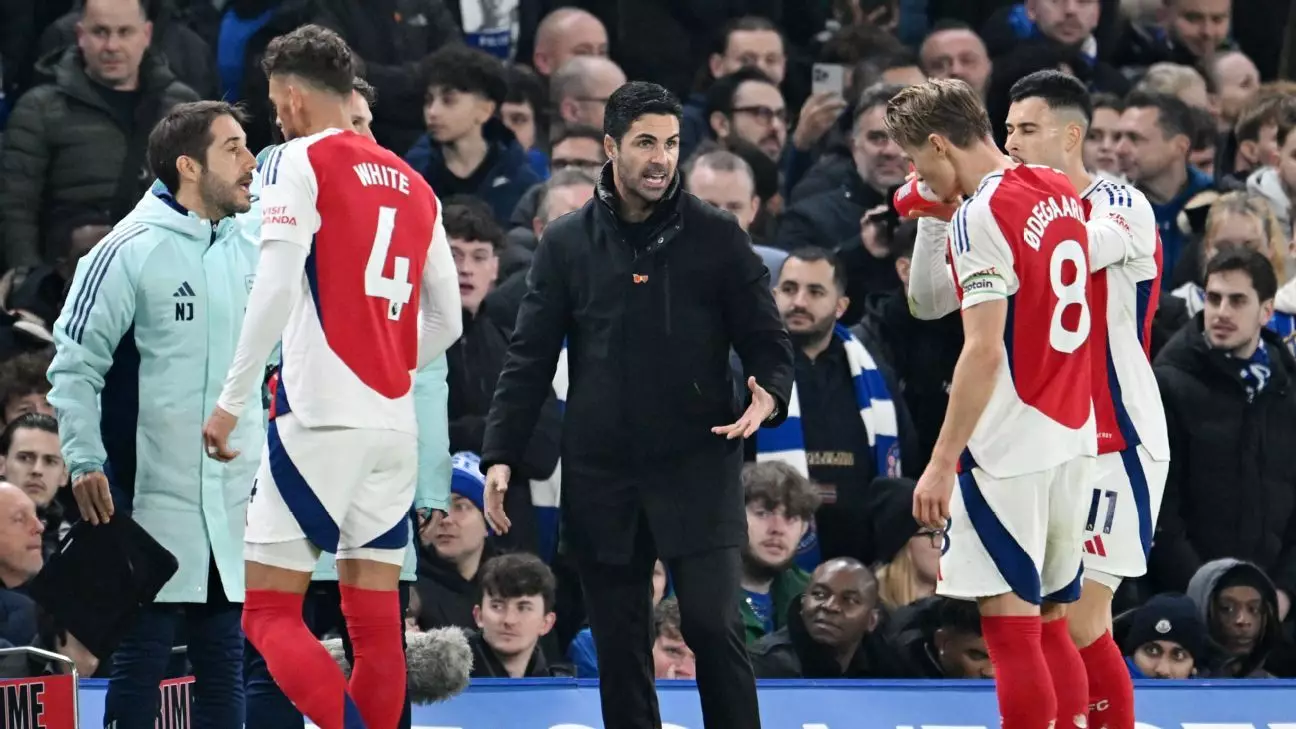Mikel Arteta’s latest comments regarding Arsenal’s injury woes reveal the depth of the challenges faced by the club this season. With a string of key players sidelined, Arteta voiced his concern during the international break, expressing a heartfelt desire for wellness among his squad. The toll of injuries has not only inhibited Arsenal’s performance on the pitch but has also added a layer of unpredictability to their campaign. Typically, a roster packed with talent offers hope, but the absence of pivotal players like Bukayo Saka and Declan Rice leaves the team in a vulnerable state, questioning their depth and resilience.
The manager termed the current situation an “absolute nightmare,” and it is hard to overlook the impact this prolonged injury crisis could have on their season. The toll of such setbacks often resonates psychologically through the team, influencing performance levels and morale. Players like Jurriën Timber and Thomas Partey have joined the casualty list, causing Arteta to rethink his strategy under immense pressure. This predicament poses a dual challenge: managing the immediate effects of injuries while ensuring a coherent tactical approach for upcoming matches.
The uncertainty surrounding Bukayo Saka and Declan Rice further amplifies concerns for Arsenal supporters and management alike. Both players had to exit the match against Chelsea due to discomfort, which is a worrying sign for their fitness. Arteta’s admission that it “doesn’t look good” casts a shadow over the team’s prospects as they head into matches in the UEFA Nations League. It’s rare to find two such critical players unable to complete a game, and their potential absence could have a cascading effect on the team’s performance.
Arteta’s deep dive into the situation highlights the caution required when discussing player recoveries. For a manager, the challenge lies not only in assessing physical capabilities but also in gauging mental readiness. Players might push themselves to return prematurely, risking longer recovery times. Saka and Rice’s cases exemplify this dilemma, as their contributions are vital for both club and country.
Against Chelsea, Arsenal displayed moments of brilliance and missed opportunities. Gabriel Martinelli’s opening goal was overshadowed by their eventual inability to secure the three points. The team’s failure to protect leads has become a concerning trend, as noted by Arteta, who indicated that they have dropped eight points from winning positions this season. This statistic is particularly alarming, suggesting that emotional fatigue could be setting in. The psychological aspect of holding leads requires not just skillful play but also mental tenacity.
In professional football, teams often go through phases where they find themselves in a precarious position. Arsenal’s current situation calls for introspection and adaptability. Arteta’s challenge will be to instill a confidence that can combat the adverse effects of injuries, especially in critical situations where points are on the line. Their shortcomings in maintaining focus and discipline during matches could be key areas requiring tactical adjustments and robust mental training.
With the next match against Nottingham Forest looming after the international break, Arteta and his staff must devise a strategy that accommodates potentially missing key players. This means reinforcing depth within the squad and perhaps shifting tactical setups to mitigate the loss of playmakers. The potential initiation of new formations or reliance on younger players could invigorate the squad and create fresh dynamics.
Arteta’s resolve to maintain faith in his players is commendable; however, he must also be pragmatic in his preparations. The question remains whether enough time and focus can ensure that the squad returns to full strength quickly. It will require not only careful medical management but also strategic planning during the international break. As Arsenal navigates this challenging period, the resilience of the team will be put to the test, and their ability to adapt could define the remainder of their season.
Arsenal sits at a critical junction where injuries present challenges, but they also offer opportunities for growth. Arteta’s approach in handling this situation will determine their capability to emerge stronger from adversity.
